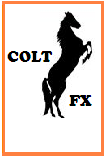Forecast (week March 15th - 20th)
EUR/USD: support @ 1.2800; resistance @ 1.3200
GBP/USD: support @ 1.3860; resistance @ 1.4300
USD/JPY: support @ 95.75; resistance @ 100.00
EUR/CHF: look for buying opportunities ±1.51
EUR/GBP: look for buying opportunities ±0.9200
This week's outlook
This weekend’s G20 meeting has been slated as a clash between the US (increased economic stimulus) and Europe (increased financial regulation) and is unlikely to resolve anything. However, the group should announce a boost to the IMF’s resources to bail-out failing countries and this should keep risk appetite buoyant. Keep tracking the equity markets throughout the week, as rising stocks will favor higher yielding currencies. Also watch the EUR/CHF rate after the SNB’s intervention and consider buying the euro if price falls to the 1.50 region because the bank could well step in again.
Calendar
US: Wednesday’s FOMC interest rate announcement (18:15) will be the big news of the week. Although there are reports of dissent in the ranks, I’m expecting the Fed to keep up recent rhetoric. The Fed is due to launch its TALF program on March 17th, expect fireworks if there is any delay. Other US data worthy of note include regional manufacturing numbers (Empire State – Monday, 12:30 and the Philly Fed – Thursday, 14:00); industrial production (Monday, 13:15); housing data (building permits and housing starts both on Tuesday, 12:30), inflation numbers (producer prices – Tuesday and consumer prices – Wednesday, both at 12:30) and Thursday’s regular new unemployment claims (12:30).
Euro zone: There’s Inflation data on Monday (consumer prices, 10:00) and Friday (German producer prices, 10:00). Tuesday’s influential ZEW economic sentiment is out at 10:00 and often moves the market, while the zone’s industrial production (10:00) rounds off the European data week.
UK: There’s more housing data out in the early hours of Monday morning (Rightmove HPI – 00:00). Wednesday sees crucial jobs data at 09:30 and the minutes of the March 5th’s Monetary Policy Committee meeting at the same time. The CBI’s survey of the country’s top 550 manufacturers’ expectations will be released on Thursday at 11:00.
Japan: The early hours of Wednesday morning sees the release of the Bank of Japan’s monetary policy statement, while the central bank’s monthly report is published on Thursday (05:00).
Top Central Bankers: ECB President Jean-Claude Trichet will be speaking at La Tribune conference in Paris on Tuesday (19:15) and the Governor of the Bank of England will be addressing the Worshipful Company of International Bankers Dinner in London on the same evening (20:10). Fed Chairman Ben Bernanke is speaking about the financial crisis and community banking in Phoenix on Friday (16:00).
Last week's action
The week opened in the same vein as the previous week closed, with a continuing high level of risk aversion. Asian markets fell as Japan posted its first current account deficit in 13 years, triggering a 26-year low for the Nikkei 225. The gloom continued as the European session opened and EUR/USD followed stocks down, hitting the week’s low at 1.2555 at lunchtime. The euro recovered somewhat as New York opened and found support at 1.26 as the session progressed, a level that was not to be broken down for the rest of the week. Tuesday’s disappointing data out of France and Germany did little to ruffle the euro as markets soared after Citigroup Inc reported that it had actually made money in the last couple of months. The news was enthusiastically welcomed as a sign that things might not get much worse for the US banking sector and Wall Street saw its best day of 2009. Axel Weber, a member of the ECB governing council, gave the euro further support when he said that he thought 1% refinancing rates were about as low as they should go. EUR/USD tested support a shade above 1.26 a couple of times late Tuesday/early Wednesday, but rising risk appetite soon had the pair testing resistance at 1.2850. The big news on Thursday was the Swiss National Bank’s intervention to weaken the franc against the euro. The euro retested support at $1.2750 immediately after the news; rose against the greenback throughout the US session and broke through 1.29 late Thursday to hit the high of the week of 1.2956 on Friday morning. The euro closed the week at $1.2928, with traders pondering the prospect of resistance at the key psych level of 1.30.
Sterling’s fall on Monday was given added impetus by last weekend’s news that Lloyds bank would be nationalized in all but name and that Barclays could also be joining the UK government’s Asset Protection Scheme in return for shares. UK manufacturing and industrial data came in worse than expected and cable fell through the US and Asian sessions to a weekly low of 1.3663. A weak pound doesn’t seem to be giving UK trade a boost as the trade balance shrank more than expected on Wednesday. However, growing risk appetite saw sterling’s decline slow and cable tested 1.39. The Swiss National Bank’s intervention saw it fall to smidgeon above 1.37, only to rise on market optimism to break the key psychological of 1.40 as the G20 meeting opened in Southern England. The pair closed the week right on the button at 1.40 with sterling weakening against the dollar for the third week running.







No comments:
Post a Comment